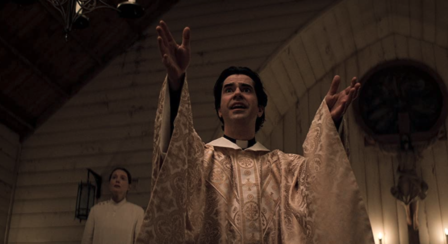
Let’s talk about stuff I liked in 2022. No, not the best of anything. Just stuff I liked. And not necessarily stuff that was released in 2022. Just stuff I found in 2022. OK? OK. Let’s go.
GAMES

Marvel’s Midnight Suns: I know a lot of folks bounced off the story/dialogue/relationship stuff—and bounced hard. But a.) the core combat is so frickin’ magnificent that it’s really easy to forgive. The idea of tactical card combat with Marvel characters sounds ridiculous; it really shouldn’t work. But oh my, it really really does. And b.) I actually enjoyed the hell out of the story/dialogue/relationship stuff. The core conceit of “superheroes at home” is really compelling to me; I think any superhero fiction is at its best when it’s looking not just at the suits but the people in them. Yeah, it can get a little goofy at times, and the game is clunky in some other significant ways. But man, it just hooked me with both pincers.
Marvel Snap: I’m not sure if I dug Midnight Suns more because of Snap, or Snap more because of Midnight Suns, or neither? Or both? ¯\_(ツ)_/¯ But this one really has its claws in me, too. The speed and simplicity are just perfect for quick little diversions, but there’s a real depth of strategy there once you get familiar with the game. This is probably unsurprising to fans of other CCGs; I never was one of those. But a single moment in Snap made me finally get the whole idea of deck synergy in a way that no previous game I’d tried was able to. (It was playing Odin after White Tiger at a location that had just morphed to Bar Sinister, if you’re curious. Just delightful.)
Vampire Survivors: I lived through the 16-bit era, so retro-styled games often make me roll my eyes so hard I can see myself think. But this one showed up one day on Game Pass so I decided to give it a try. And I was this close to quitting and deleting within the first five minutes. (“Where the hell is the attack button?!”) Many dozens of hours later I think it’s one of the most fiendishly addictive and subtly deep games I’ve ever played. Really cleverly done and oh no it’s on iOS now.
Into the Breach: I heard so much good stuff about this game that I bought it when it came out on Switch pretty much sight-unseen. And I…didn’t like it. It just did nothing for me. I bounced off. Fast forward to 2022 and Netflix’s push into games, which included an iPad version available free for subscribers, and I gave it another shot. And something about the touch interface made all the difference in the world. I lost track of how many times I beat it before eventually having to delete it for space reasons.
And of course I played Tunic and Elden Ring and Immortality and Atari 50 and they’re all great. Believe the hype. (And there are also a few notable games I haven’t played enough of yet to form an opinion, like A Plague Tale: Requiem and Pentiment.) But these four, man. These four got me.
TELEVISION

Look, I do not watch a lot of TV. When I have downtime I tend to want to dive into a book instead of firing up even the most celebrated hot new series (a fact which will likely become very clear in the next section). But I did have some really great TV experiences last year. Like:
Midnight Mass: A dear friend of mine kept pushing me to watch this. He said he was convinced I’d love it, that it was practically made for me. I yeah-yeah-yeahed for months, because like I said, I just don’t really prioritize TV? And when some dumbshit website put a significant spoiler in a FRICKIN’ HEADLINE, I yeah-yeah-yeahed even harder. Then I ended up with a free weekend, when my wife and daughter were out of town, and decided to finally put it on and oh my sacred heart what an unbelievably great series. The writing, the performances, the cinematography—my god. Just unbelievable. I’d never seen any of Flanagan’s other stuff but now? I’ll watch anything the dude makes. I don’t think the show gave me nightmares per se but for weeks I’d wake up in the middle of the night and the first thing I’d think of was that scene. With Joe. You know the one. Oh, and the weekend that I ended up binging the whole series? It just occurred to me it was Easter weekend. I started the series on Good Friday. Might need to make it part of the yearly celebration now.
Continue reading “My Favorite Whatever of 2022”